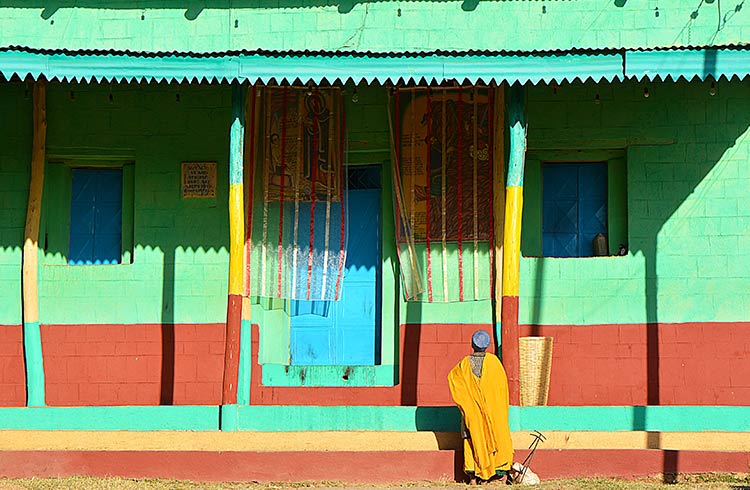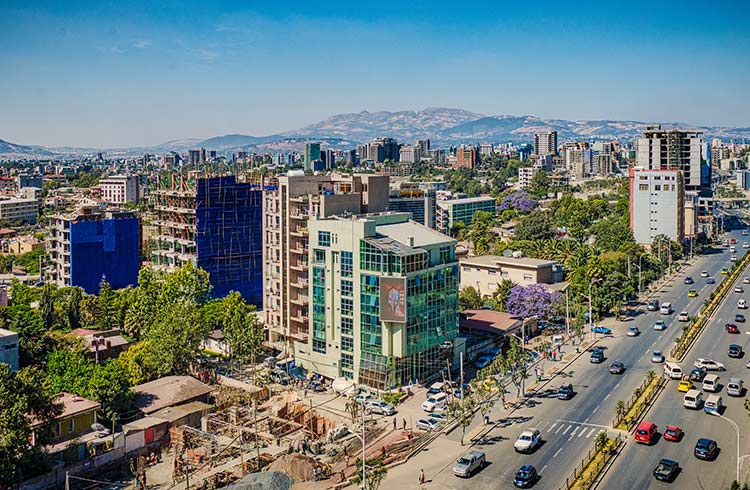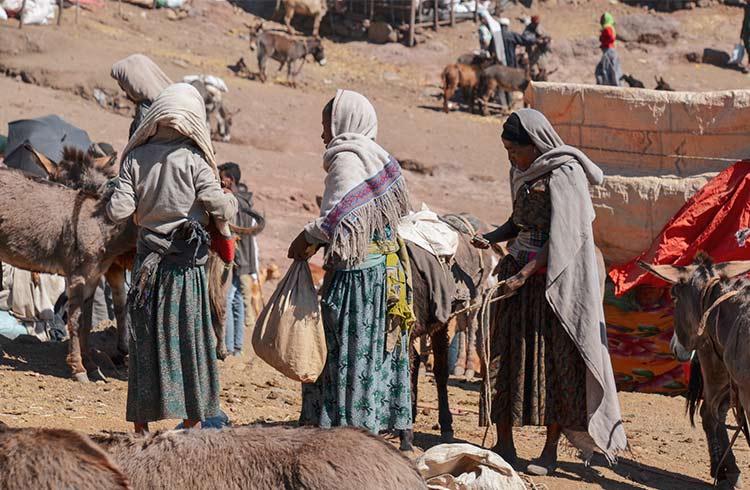Is Ethiopia Safe? 6 Things to Know Before You Go
Aside from the border regions, Ethiopia is a reasonably safe place to travel. But, there are a number of things travelers should know.
 Photo © Getty Images/ICHAUVEL
Photo © Getty Images/ICHAUVEL
- How safe is Ethiopia?
- Travel scams in Ethiopia
- When to visit Ethiopia
- Where not to go in Ethiopia
- Beware of pickpocketing in Ethiopia
- Road safety in Ethiopia
- Outdoor adventure safety in Ethiopia
How safe is Ethiopia for travelers?
Ethiopia is currently experiencing civil unrest. Stay up to date with the situation and consider changing your plans if need be.
There are frequent incidences of civil unrest in Ethiopia, including protests and strikes. In November 2019 there is civil unrest in the Southern Nations, Nationalities and Peoples' Region, including Hawassa/Awasa.
A referendum on potentially forming a new regional state will be held in the Sidama Zone of Ethiopia's Southern Nations Region on 20th November 2019. Demonstrations could occur before, during and after the referendum.
Street protests have turned violent in the past, so if you see a protest, walk the other way.
Ethiopia is fairly safe when it comes to crime. All African nations will hold some degree of risk, and most of all it's important to watch your back, not show outrageous displays of wealth, and be discreet with your valuables. Try to walk with confidence, like you know where you are, and be comfortable with changing your plans if something becomes unsafe or risky.
1. Scams in Ethiopia
Never accept an invitation from someone on the streets of Addis Ababa to join them at a 'gathering' – especially if they try to assure you it will be free. Most of the time this scam involves chat (khat) chewing, or someone guiding you around at no cost, but then they tell you how much you owe them after their kind gesture has come to an end.
Students will join your walking tour in order to practice their English, but at some point, they will begin asking you for money so they can pay for books or shoes. These students are persistent, but not aggressive, but do not give them money.
When World Nomads' Ellen Hall was hiking to a rock church in the Gheralta region, a local guide was hired to help assist them up the rocky slope. When he asked for money, the lead guide told her not to give him more money, as he was already being paid.
2. Safest time of year to visit Ethiopia
Peak tourist season in Ethiopia is from late September to January when temperatures are pleasant, skies clear and rainfall low in most parts of the country.
The rainy season lasts from June to September but won't cause too much disruption to your plans. During this time you will see fewer tourists and greener landscapes. June and July are the wettest months, especially in the north – so avoid this time of year if you want to hike in the Simien Mountains.
As the country is situated on a high plateau, temperatures at higher altitudes are typically lower than at sea level. In Ethiopia's lower-lying regions, temperatures are warmer.
Pack a mixture of warm and cool climate clothing to be on the safe side.
3. Dangerous places to avoid in Ethiopia
Ethiopia is a tribal country. It's common for outbreaks of violence to occur in some parts of the country, but not directly affect other areas of Ethiopia. It's important travelers are aware of any unrest, and to know which locations are listed as Do Not Travel or Reconsider Your Need to Travel.
Stay up to date with your government's travel advisory prior to leaving for your trip, and sign up for alerts so that you are across the situation. Be aware the internet connection in Ethiopia is not reliable.
If you do see large crowds of protestors, avoid them at all costs.
Travelers should avoid all border regions with Kenya, South Sudan, Sudan or Eritrea, and not travel to the Somali region in the east to avoid the threat of violence and conflict.

4. Pickpocketing in Ethiopia
The ancient art of pickpocketing is a constant threat in Ethiopia and is the most common crime travelers will experience.
'Snatch and run' thefts, including from occupied vehicles, and other petty crimes are common in the capital, Addis Ababa.
Remain cautious and aware of your surroundings, keep your valuables out of sight and don't dress in flashy clothing. Pickpocketing is usually a crime of opportunity rather than a planned attack.
When it comes to specific areas to watch out for, exercise caution in crowded streets, and be extra careful while walking around the Mercato in Addis Ababa where pickpockets may operate.
Criminals will be looking for an easy score on national and religious dates – so check out the festival calendar before you go.
5. Crime on the roads
Travelers should be cautious at all times when traveling on roads in Ethiopia.
There have been reports of highway robbery, including carjacking, by armed thieves outside urban areas. Some incidents have been accompanied by violence.
If you need to travel by road, be cautious and limit road travel outside major towns or cities to daylight hours and travel in convoys.
When driving, be wary of other motorists warning you of a mechanical problem or loose tire. This may be a scam used by thieves to get you to stop the vehicle.
Most of all, be alert and aware of your surroundings at all times to ensure that you aren't being followed.
6. Hiking safely at high altitudes
Ethiopia has high and rugged mountains, deep valleys and sweeping plains. Its altitudes range from the highest peak of Ras Dashen at 15,157ft (4,620m) to the Danakil Depression at 485ft (148m) below sea level.
Hiking and trekking are popular among travelers to Ethiopia, and whether you're going for a day hike or multi-day trek, it's important you are prepared for all the elements.
In the Simien Mountains National Park you must hike with a certified guide, as well as a licensed armed guard. This means you cannot set off and go hiking alone. There are a number of trails that can take anywhere from two days to two weeks to complete, so keep this in mind while planning the right trek for your level of fitness.
The Simien Mountains, the rock churches in the Gheralta Mountains, Lalibela Highlands and the Sanetti Plateau are just a few of the popular destinations to go to for an outdoor adventure. When you visit high elevation areas such as the Simien Mountains or Bale Mountains, you will need to acclimatize and stay hydrated on your trip. It's important you do your research and make sure you're aware of the risks.
Listen to The World Nomads Podcast: Ethiopia
Related articles
Simple and flexible travel insurance
You can buy at home or while traveling, and claim online from anywhere in the world. With 150+ adventure activities covered and 24/7 emergency assistance.
Get a quote
2 Comments
Lovely country and people. And was loving our holiday up until My Husband had his mobile phone stolen whilst we were walking back from the Supermarket. Teenagers pushing magazines onto him shouting they were hungry to then steal his phone from his pocket. We both shouted for them to go away. They pushed my Husband and then ran off. Needless to say I am saddened- the phone had all our Anniversary celebrations on from the day before. We are widely travelled, always cautious and for obvious reasons sadly will not return because of this. No excuse for making a person feel violated whilst in another Country and clearly stealing to order. These people need punishing. The lack of food story is rubbish and having spent so much here and donated to the church- angry that people don't do anythingto prevent this. Sorry would not recommend
Not true that all African countries pose some form of risk. This is true for Latin America and for Europe as well. Beware of your own preconceptions and wrong media depictions of Africa.